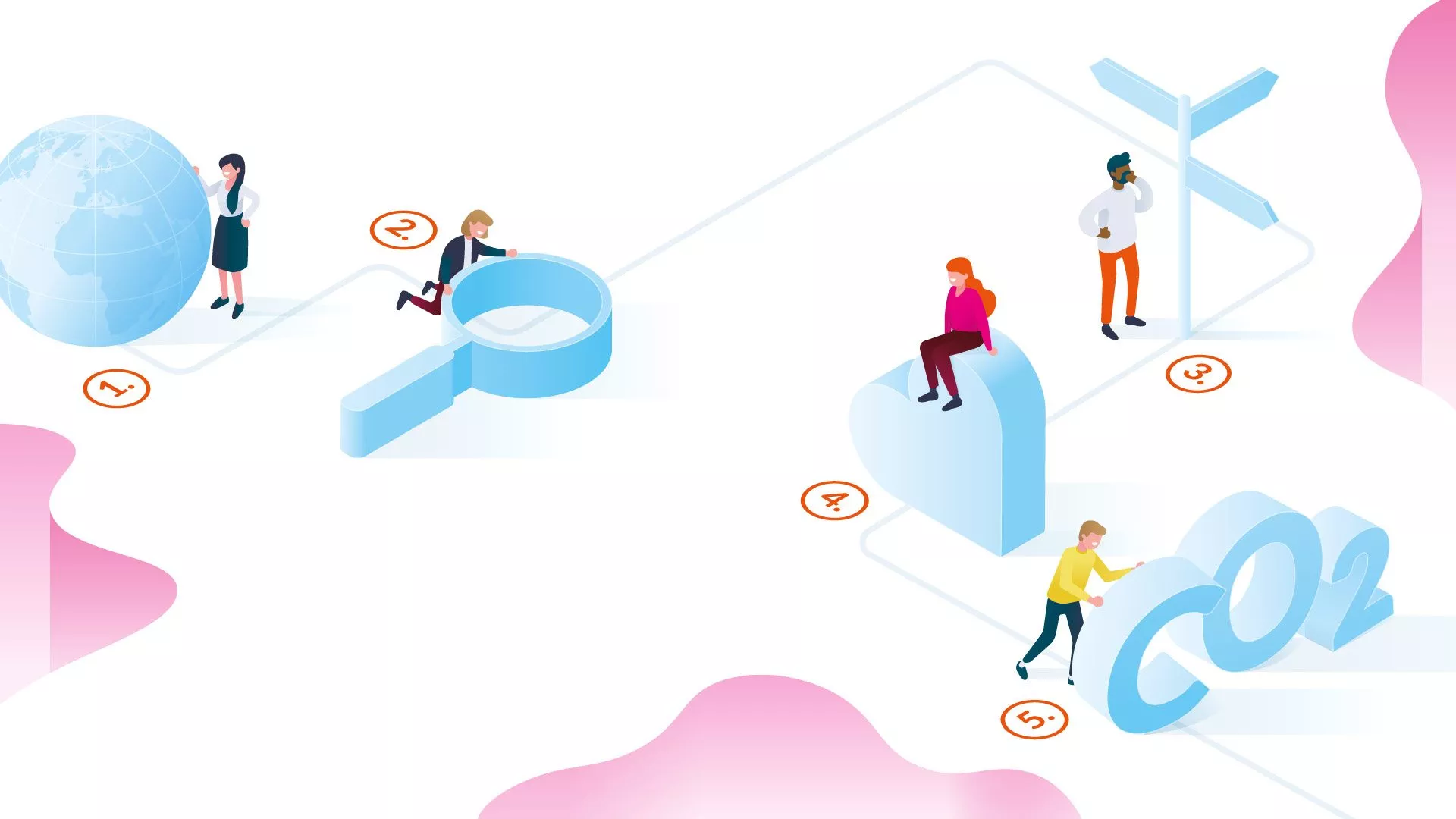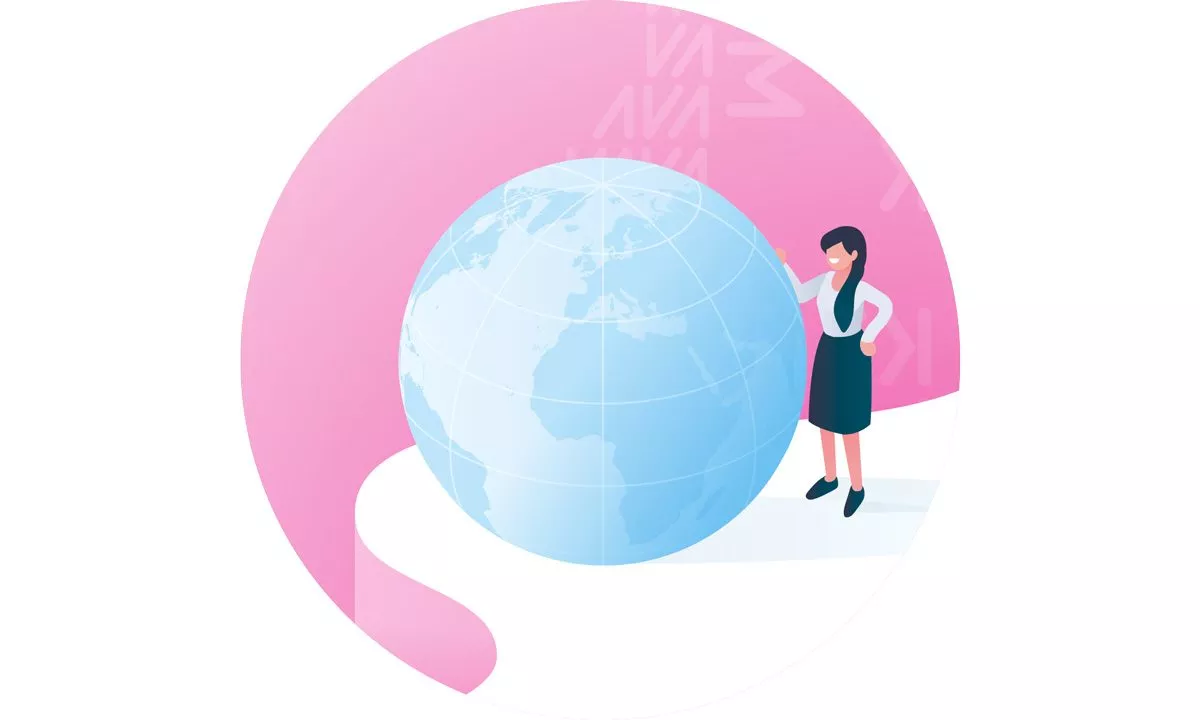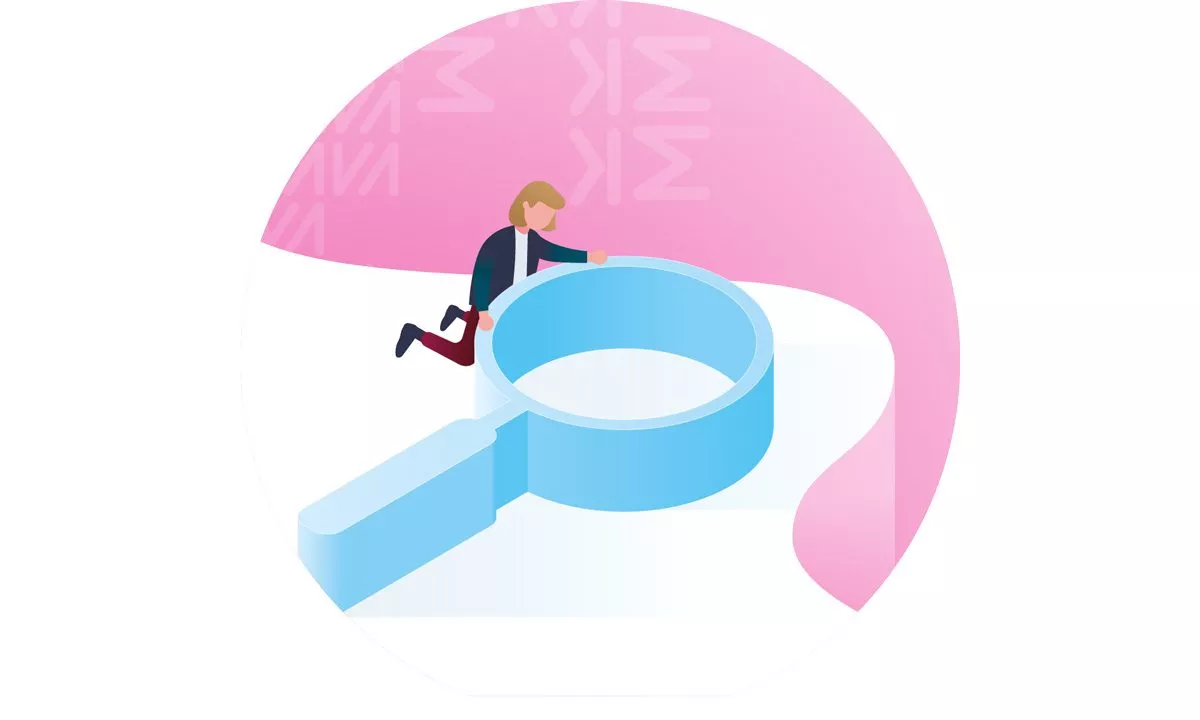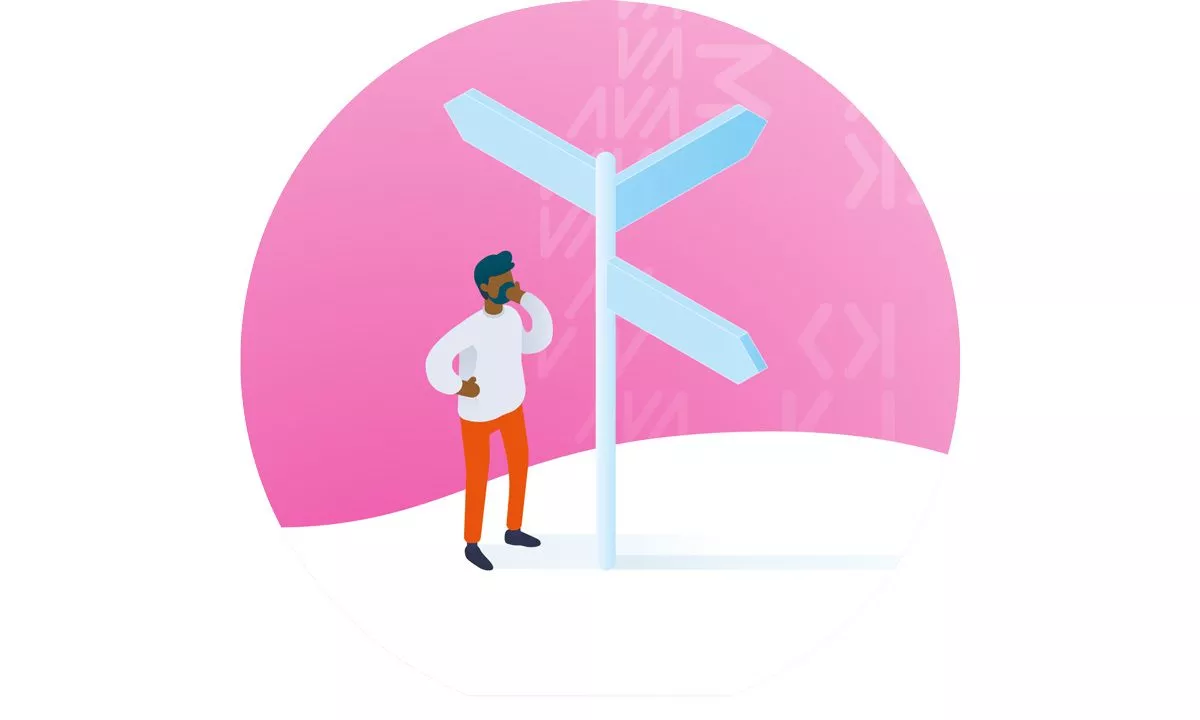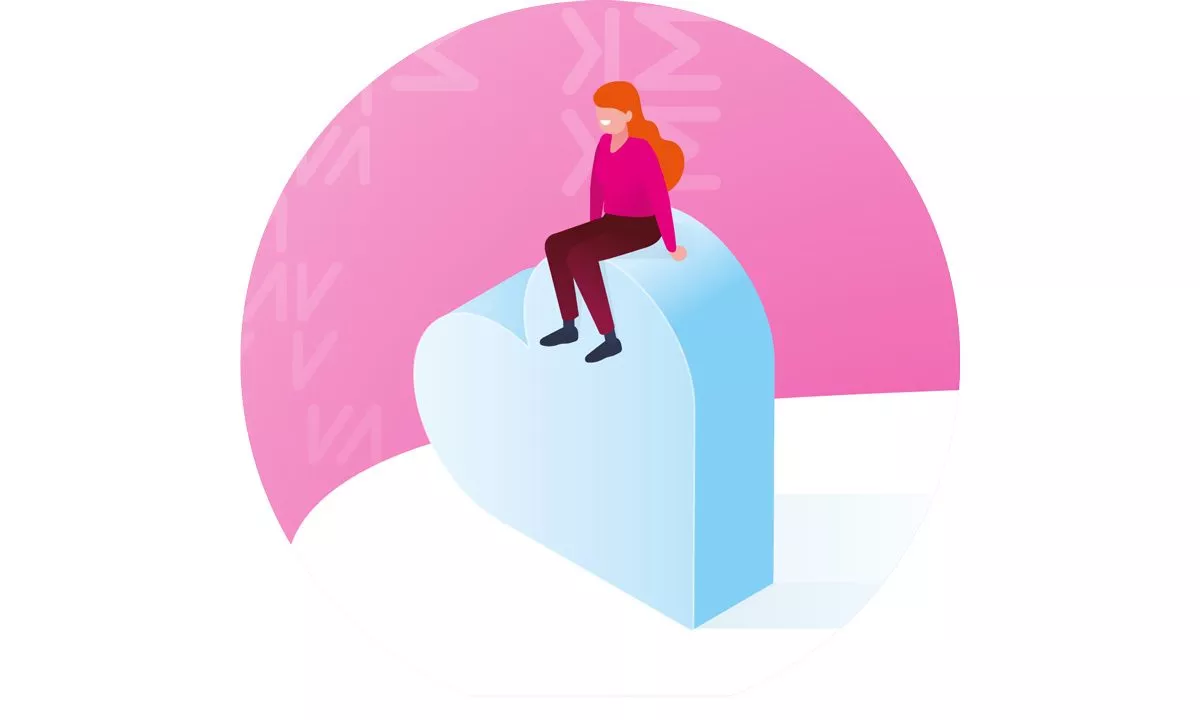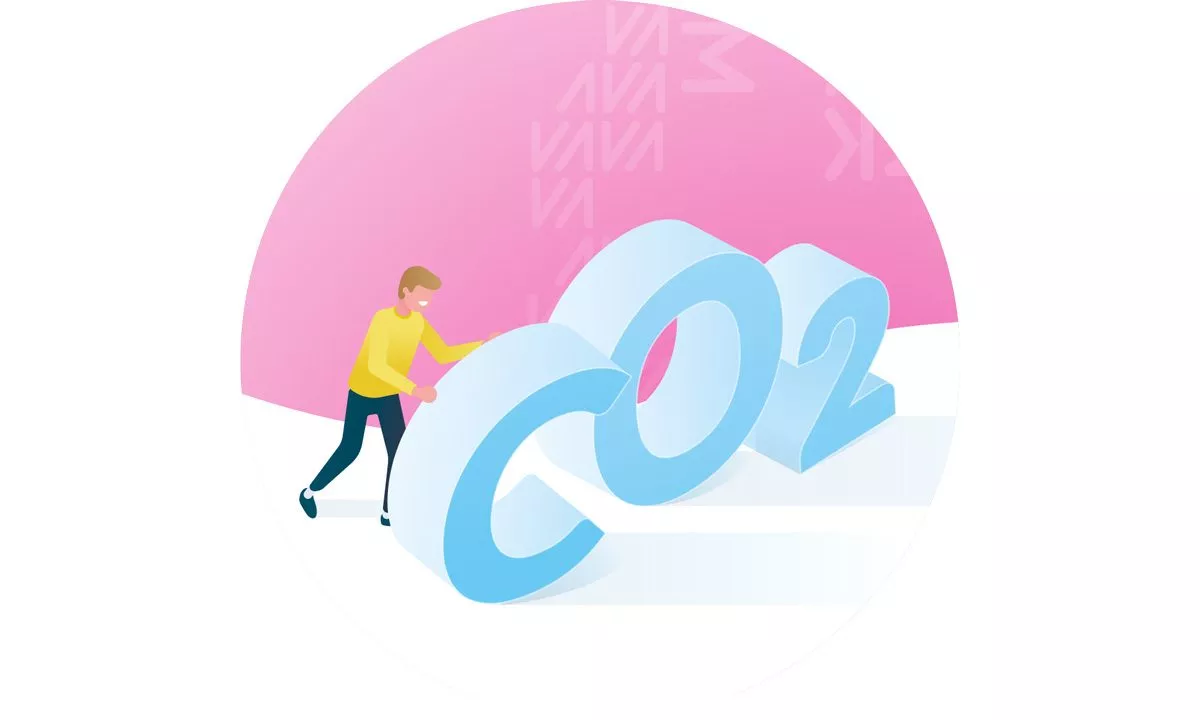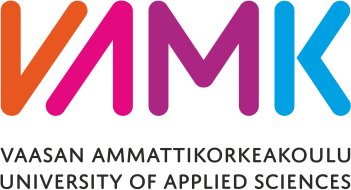Sustainable development and responsibility 2022
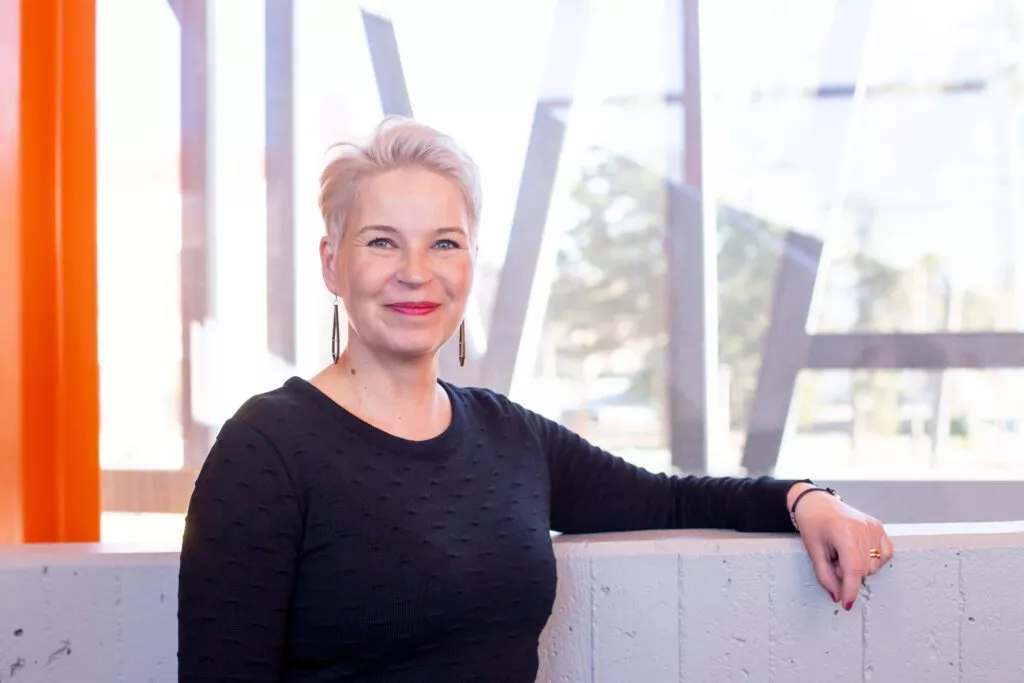
Greetings from our president Kati
Vaasa University of Applied Sciences’ first sustainable devel-opment and responsibility programme was drafted in 2011. That was ten years ago. In the ten years since, issues of sustainable development and responsibility have only become more topical.
We are committed to the sustainable development and re-sponsibility programme of the Rectors’ Conference of Finnish Universities of Applied Sciences Arene. In this programme, we highlight the promises and measures that we are focusing on in particular here at Vaasa University of Applied Sciences.
Sustainable development and responsibility are key themes for us. The education that we provide and the R&D that we carry out contribute actively to tackling these challenges. We want our entire community to participate in building a more sustain-able world in their respective roles. These are challenges that we cannot leave for the next generation to solve; they must be tackled now.
Students and stakeholders, partners, we want you all to be able to trust that our cooperation is built upon a sustainable and responsible vision and operating methods.
This is a journey that we are on. That is something that we all recognise. This programme is a major step towards our publicly announced goals. We will be updating the programme annually. Let us build a sustainable future together.
Kati Komulainen
PRESIDENT, CEO
Introduction
In November 2020, the Rectors’ Conference of Finnish Universities of Applied Sciences (Arene) published a sustainable development and responsibility programme for universities of applied sciences, Sustainable and Responsible University of Applied Sciences, which is based on the policies of the UN 2030 Agenda and the Finnish Ministry of Education and Culture. The joint work on sustainable development and responsibility continues in universities of applied sciences, and VAMK is actively taking part, providing its expertise in carbon footprint calculations, in particular.
The largest energy technology cluster in the Nordic countries, EnergyVaasa, is located in Vaasa, the Nordic capital city of energy. The aim is to develop sustainable technological solutions that will help reduce emissions and conserve energy on a global scale. This also forms a natural foundation for the ambitious goals of the City of Vaasa’s energy and climate programme, Carbon Neutral Vaasa 202X, and the strategic objectives derived from these that also apply to all of the City Group operators, including VAMK. VAMK plays a key role in operating within the energy ecosystem and implementing the climate and energy programme. VAMK’s strategic goal is to become carbon neutral by 2030. As part of our regional impact, our mission is to offer a competitive edge to the main working life operators by training future talent and generating trendsetting vision. For this reason, the themes of sustainability and responsibility are present in all parts of our strategy and operations.
VAMK created its first sustainable develop-ment programme as early as in 2011. Since then, extensive and systematic measures have been taken, in line with the national trends, to promote a sustainable future. The main measures to reduce its carbon footprint have included the adoption of emissionfree district heating and electricity, and changing its shared cars to natural gas vehicles. Furthermore, building engineering systems have been optimised in order to conserve energy.
The sustainable development and responsi-bility programme that is currently being created for VAMK is the second of its kind. The personnel have been consulted during its creation process. The programme is a dynamic and annually updated document that steers the promotion of sustainable development and responsibility at VAMK. New goals are added to the programme every year, making the work towards a more sustainable future continuous, although the actual improvements are carried out step by step. We will monitor how well the programme’s goals are achieved and report on the measures taken to promote the objectives in our annual review.
We will send out regular notifications regarding the sustainability programme’s themes, both internally and externally via social media, news and press releases. In accordance with our communications strategy, sustainable development is one of the spearheads of our media communications. In our next year’s communications, we will highlight sustainable development themes – for example, sustainable development will be the general theme of our external communications in January.
Responsibility means taking responsibility for a company’s social, financial and environmental effects.
Sustainable development refers to development that satisfies the needs of current society without making compro-mises at the expense of future generations. This can be achieved by taking the environment, people and the economy into account in decisionmaking and operations. At the core of sustainable development is a concern about inequality between individuals and the diminishing diversity of ecosystems that form the basis of all life.
Working group:
Sanna Torkko, Leena Vilkuna, Marja-Riitta Vest, Asseri Laitinen, Hilkka Korpi, Taina Kyrönlahti-Bertell, Eva Sundell, Ulrika Palmberg and Miia Leinonen
Processed by the management group on 8 December 2021
Our pledge
LWe will continuously create and develop innovative solutions towards a more sustainable future in cooperation with our extensive partner network at a local, regional, national and global level.
- We will train responsible talent for the needs of working life
- We will provide solutions to sustainability challenges in our RDI operations, and promote smart and sustainable development
- We lead responsible lives
- Showing sympathy is a responsible act – we look after each other!
- Our carbon footprint
We will train responsible talent for the needs of working life
Our goal
- We will recognise our responsibility as promoters of sustainable development and responsibility.
- The education that we provide will produce experts who will promote sustainable development in working life and society through knowledge, skills and attitudes.
- All staff members and VAMK’s graduates will have a basic understanding of sustainable development and what it entails in their specific field.
- We will promote the accessibility of higher education.
Our measures
- We will offer and market a sustainable development training package (2–3 credits) or other training on the various sustainable development subthemes to our personnel.
- We will include sustainable development, circular economy and/or carbon neutrality in all of our curricula.
- We will offer study modules of continuous learning on the theme to the area’s businesses.
- We will ensure that all students can access our education, regardless of their circumstances.
- We will facilitate the ability of our students to invest responsibly.
We will provide solutions to sustainability challenges in our RDI operations, and promote smart and sustainable development
Our goal
- We will influence the formation of a sustainable, smart and responsible society through our RDI operations, which are closely integrated into our teaching, while taking the changes in our operating environment dynamically into account.
- We will promote the joint development of goal-oriented, coordinated, sustainable and responsible RDI operations with other educational organisations, businesses and the public and third sectors, while also engaging individuals and emphasising openness and transparency.
- We will enhance our knowledge management, proactive approach and monitoring in connection to our ecologically, socially, financially and culturally sustainable and responsible RDI operations.
Our measures
- We will promote sustainable development and responsibility by integrating our teaching (teachers and students) with our multisectoral and network-like RDI operations in a phenomenon-based way. Skill enhancement will also allow our teaching to be of higher quality and up-to-date and our students to meet the needs of working life, in terms of sustainability and responsibility.
- We will work as an active and appropriate partner in regional, national and global networks in order to achieve the sustainability and responsibility objectives of Finland and the EU. We will boldly carry out trials and create concepts of new solutions, and facilitate new ways of participating.
- We will enhance our knowledge management, information production, monitoring of megatrends and proactive approaches.
- We will also implement jointly determined criteria, with which we will plan, carry out, assess and develop further our sustainable and responsible RDI operations. We will provide open and understandable information about our operations and impact on society’s development through extensive influence and participation via various channels.
We lead responsible lives
Our goal
- All members of VAMK’s community will take responsibility for their day-to-day choices.
- We will support our staff and students and enable them to make sustainable choices.
- Sustainable development will be the goal of our finances and investments.
- Our financial management will support the rest of the organisation in sustainable development and responsibility by using specific processes to ensure commitment
Our measurements
- We will allow our administrative and support service staff to work remotely and from multiple locations, and encourage hybrid learning. We will aim to participate in meetings and training remotely, where possible, thereby avoiding unnecessary travelling.
- We will facilitate low-emission transport and promote more sustainable forms of commuting.
- We comply with the UN Principles for Responsible Investment in our investment policies. Renewable energy sources, such as wind power, are part of the investment portfolio of Vaasa University of Applied Sciences.
- We will investigate ways of building renewable energy solutions at the campus to be utilised in teaching as well.
- We will take full advantage of the campus’s building engineering systems by optimising the heating and ventilation settings.
- We will improve waste sorting at the campus.
- We will reduce the emissions connected to procurement by favouring low-emission and emission-free acquisitions and services and by taking advantage of circular economy.
Showing sympathy is a responsible act – we look after each other!
Our goal
- We will be easy to approach. We will trust and respect every person as an individual and work as a team.
- We will promote the wellbeing of our personnel and students.
- We will improve our management and work community skills to enhance our staff members’ motivation, competence and work ability.
- As an employer, VAMK will operate in a financially, ecologically, socially and culturally responsible manner.
- We will offer our personnel an opportunity to update their skills through our partner network.
- We will listen to our students’ needs and include them in our decision-making.
Our measurements
- We will operate according to our values and make our ethical code part of our daily work.
- We will work and communicate in an open and transparent way about our operations.
- As part of our daily work, we will make early interventions, where necessary, to threats against staff members’ ability to work, in accordance with the early support model.
- We will invest in students’ guidance and wellbeing.
- We will invite students to our working groups and bodies of decision-making. We will work closely together with student union VAMOK.
Our carbon footprint
Our goal
- Our goal is to become carbon neutral by 2030.
- We will focus on mitigating emissions from specific sources determined for each year by Arene.
Our measurements
- We will calculate our carbon footprint annually by using Arene’s model.
- We will take part in making this model increasingly comprehensive and accurate. However, the calculations may not take too many resources away from the actual, tangible emission-reduction measures or the related planning.
- We will automate our organisation’s carbon footprint calculations. This will take place gradually as new systems become available on the market, but the accuracy of the calculations will never be compromised.
- Our operational guidelines will factor in our emission-reduction measures.

